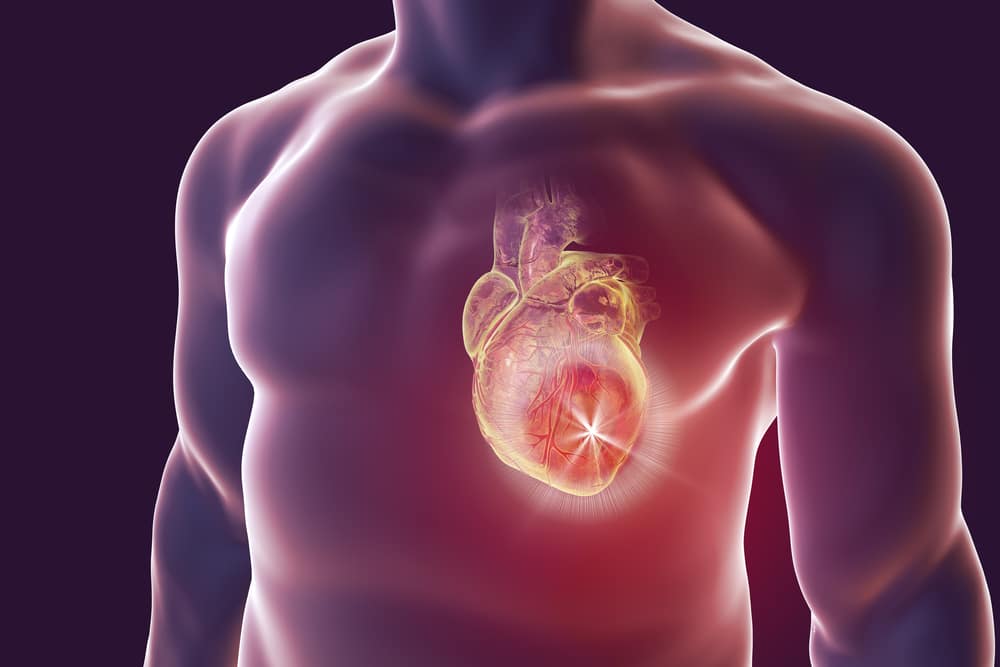The Difference Between Cardiac Arrest & Heart Attack
Chest Pain & Heart Attack
•
Feb 3, 2021

Though people tend to use these terms interchangeably, there is a difference between cardiac arrest and a heart attack. Cardiac arrest vs. a heart attack can be explained like this: if your body is a house, a heart attack is a plumbing issue while cardiac arrest is an electrical issue.
Your heart valves (coronary arteries) pump blood to the heart like a pipe system, so if those pipes get clogged and can’t deliver blood, you may be at risk of a heart attack. Whereas your heart has a built-in “electrical” system to keep it beating at a regular pace. When that system “malfunctions” and starts beating at an incredibly fast rate, the heart stops beating altogether and it can no longer pump blood and oxygen to the rest of your body. This results in cardiac arrest.
Cardiac arrest and heart attacks are both severe heart conditions, but knowing how to spot the symptoms and differences could save a life.
Why does cardiac arrest occur?
Cardiac arrest occurs when your heart has a rapid, irregular rhythm (arrhythmia) and stops beating, cutting off all of the blood flow to the rest of your organs. When your heart stops pumping blood to your brain, it can cause you to lose consciousness.
Cardiac arrest is more likely to affect older people, but if you previously have had a heart attack or have other pre-existing heart conditions including high cholesterol or high blood pressure, you are more susceptible to going into cardiac arrest. Be sure to visit your doctor for routine checkups and preventative screenings.
Cardiac arrest symptoms
Here are common cardiac arrest symptoms to look out for:
- Chest pain*
- Shortness of breath/wheezing
- Heart palpitations
- Sudden collapsing
- No pulse or breathing
- Loss of consciousness
Sudden collapsing, no breathing/pulse, and loss of consciousness are immediate signs of sudden cardiac arrest. If you notice any of these symptoms above, especially ones of sudden cardiac arrest, call 911 or get to an ER as soon as possible.
*If your chest pain feels intense and seems to last for a long time, consider going to the ER. For more information, read our article When to go to the ER for Chest Pain.
Causes of a heart attack
What causes heart attacks? A heart attack occurs when blood flow to the heart is blocked by buildup inside the arteries. If this buildup goes untreated, there is a larger risk of severe damage to the heart or even death.
Leading a healthy lifestyle can significantly reduce your risk of a heart attack, but if you’ve suffered from one in the past, visiting your doctor regularly can help you catch symptoms early before they get too severe. In the event you witness someone showing these symptoms, it’s important to know how to help someone having a heart attack.
Heart attack symptoms
Here are common symptoms of a heart attack to look out for:
- Shortness of breath
- Chest pain
- Jaw pain
- Lower abdomen pain
- Lightheadedness
- Cold sweat
- Nausea
Some of these are similar to symptoms of cardiac arrest, but tend to be more easily detected. These symptoms can usually last for a few days or even a week. Read our blog for a more in-depth look at the heart attack warning signs.
Which is worse, heart attack or cardiac arrest?
Though both of these conditions are severe and require an immediate trip to the ER, cardiac arrest is more serious. When someone goes into cardiac arrest, brain damage can occur in a matter of minutes due to the lack of oxygen and blood. Symptoms of cardiac arrest can be less easily detected, and if not treated immediately, can be fatal. If you feel you’re experiencing any heart attack symptoms, talk to a doctor. It is better to get a “false alarm” than to risk the possibility of permanent damage to your heart.
Complete Care is Here for any Heart-Related Emergency
Though there are differences between cardiac arrest and a heart attack, heart-healthy habits are the key to preventing them from happening. For more tips on how to live a healthy lifestyle, be sure to follow us on Facebook, Instagram, and Twitter for updates.
We pour our hearts into emergency care. No matter what day or time, the staff at Complete Care are ready to take care of you. We’re open 24/7 for any questions or concerns you may have regarding your heart health. Visit your nearest Complete Care location today for quick, efficient, patient-centered care today.
More Helpful Articles by Complete Care: